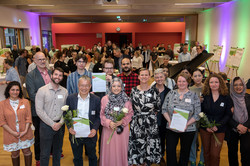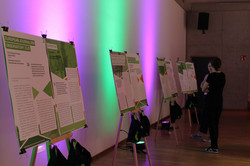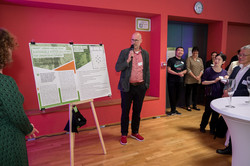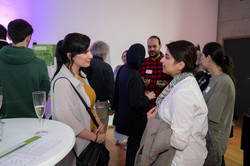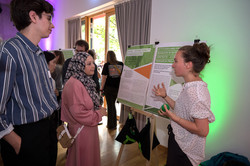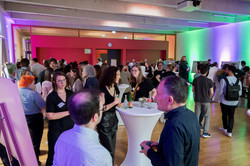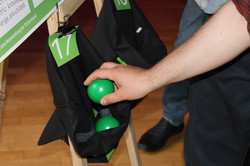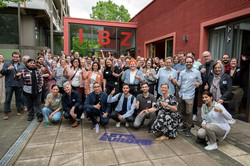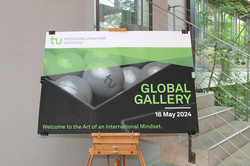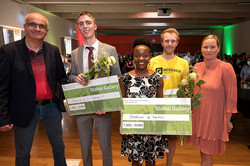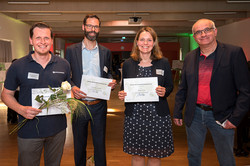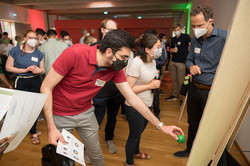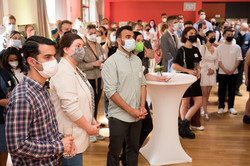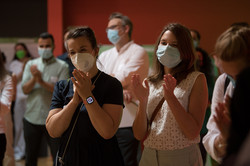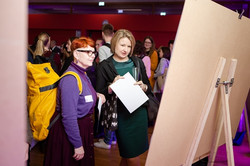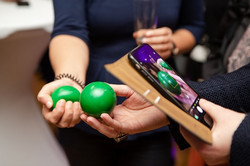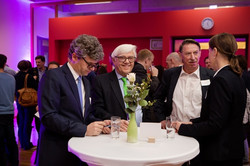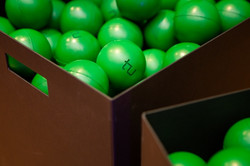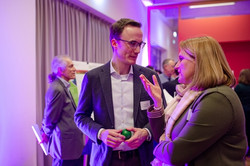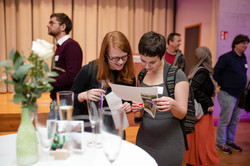Global Gallery 2026
On 6 May 2026, the fourth Global Gallery takes place at the International Meeting Center (IBZ) of TU Dortmund University. In the style of a vernissage, outstanding international projects of TU Dortmund University will be presented with a poster presentation. You can look forward to interesting best practice examples or actively participate yourself by taking part in the poster competition. The three best international projects are awarded prize money.
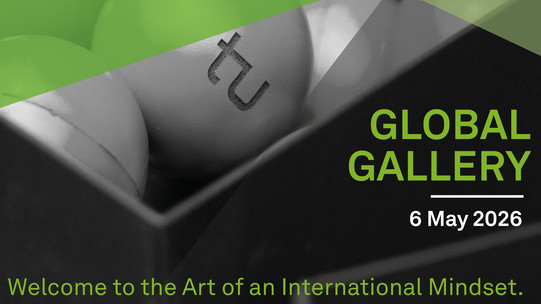
Program
| 4:30 p.m. | Admission and reception |
| 5:00 p.m. | Words of Welcome by the Vice President International Affairs, Prof. Dr. Tessa Flatten |
| 5:15 p.m. | Gallery walk and voting |
| 6:15 p.m. | Award ceremony |
| 6:30 p.m. | Meet & greet with flying buffet |
Project submission and registration
Review
Global Gallery 2024
On the evening of 16 May, scientists, students and staff of TU Dortmund University presented their initiatives, which all had an international component, at the third Global Gallery. After a poster exhibition, the guests chose their three favorites from a total of 19 projects. Prize money of €1,500 each went to a teaching project by exiled academics for students in Afghanistan and in Dortmund, a project on intersectionality in higher education, and a project on sustainable urban design in Vietnam. During a “Gallery Walk”, the many guests were able to learn about the 19 initiatives, talk to the people involved and cast two votes for their favorites.
Please confirm video activation.
After activation, cookies will be set and data is sent to YouTube (Google).
To the Google Privacy Policy
The three winning projects
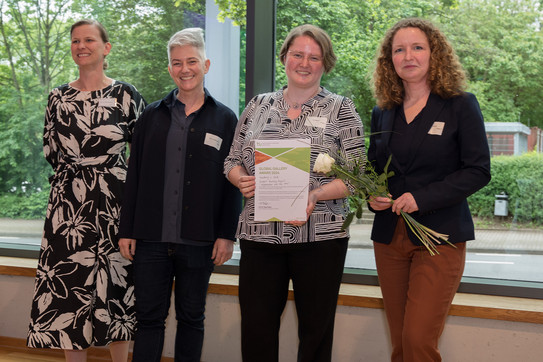
The “Tandem Teaching Project: Afghanistan and the Arts” of the Academy in Exile (AiE) reaped the most votes of the evening. The Academy has been hosted at the Department of Cultural Studies since 2023 and supports researchers at risk in the shape of fellowships and scholarships. In view of the latest bans on Afghan women participating in education and research in their home country, AiE fellows organized a digital seminar for students at TU Dortmund University and from Afghanistan. The interdisciplinary seminar “Afghanistan and the Arts”, which is planned for the 2024/25 winter semester, will deal with human rights, the role of art in advancing women’s rights and Afghan photography in a global context, among other topics.
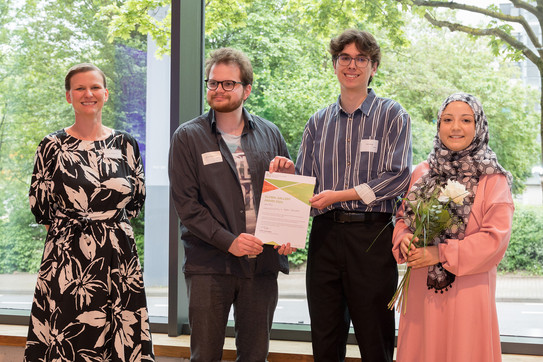
The second prize was awarded to a team from the Center for Higher Education (zhb) for its project “InterHEd – Intersectionality in Higher Education” funded within the EU’s Erasmus+ program. The aim of the project is to make universities and their teaching more inclusive and diverse by sensitizing stakeholders to the importance of intersectionality. To this end, the team, together with three European partner universities, is developing new methods to integrate people from different social groups into university teaching. In addition, InterHEd wants to foster an exchange of awareness-raising practices between universities.
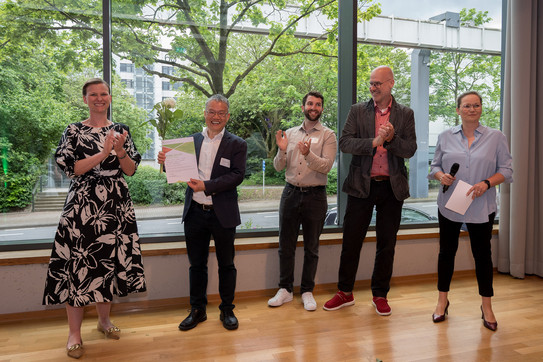
Another €1,500 went to the Department of Spatial Planning’s project “Smart Urban Areas (SUA) – Sustainable System Solutions for Urban Development”, which is funded by the Federal Ministry for the Environment, Nature Conservation, Nuclear Safety and Consumer Protection (BMUV). In this pilot project, the Research Group of Spatial Information Management and Modelling (RIM) is investigating which measures are suitable for adapting urban buildings to climate change as well as for saving energy and water, using the example of a tower block in Hanoi. The SUA team is combining smart technologies with ecological principles to develop a model that can be transferred to other cities and shows how smart cities can also become sustainable green cities.
Global Gallery 2022
At the second Global Gallery on 18 May 2022, outstanding international projects of TU Dortmund University were presented to the university public with a poster presentation.
The Global Gallery is a new event format that serves as a further development of the former International Reception. This year, a total of 29 international projects were presented and the visitors were able to vote for their favorite projects during the event.
To get more impressions, we invite you to watch the following video:
Please confirm video activation.
After activation, cookies will be set and data is sent to YouTube (Google).
To the Google Privacy Policy
Among the three most voted projects, "Shadows of Injustice" received the most number of votes: In Nairobi, 1.7 million people - roughly equivalent to the population of Hamburg - walk to work every day, risking their lives, as the road network is mainly designed for car traffic, although only eight percent of Nairobi's inhabitants own a car. The goal of Dorcas Nthoki Nyamai's project from the Department of Spatial Planning is therefore to expand the infrastructure for pedestrians and improve its safety.
The second place was awarded to the project "Sucking up or soaking in? Climate resilient upgrading of informal settlements in Bangkok": Students from the Department of Spatial Planning are investigating unofficial neighborhoods in Bangkok and how they can be better protected against flooding, as Thailand's capital is at high risk of flooding and natural disasters particularly affect the low-income residents of unofficial communities.
The project "Integreat - the digital integration platform" also received 1,500€: The app enables immigrants to quickly and easily access relevant information that cities or districts provide on the platform in several languages. Nationwide, almost every sixth municipality is already using the app, which Prof. Manuel Wiesche from the Department of Economics and Philip Popien and Mizuki Temma from the Department of Computer Science developed together with partners.
Global Gallery 2020
At the first "Global Gallery", outstanding international projects of TU Dortmund University were presented to the university public on 27 January 2020.
As a further development of the former International Reception, a total of 30 international projects were presented at this new event format. Visitors were able to vote for their favorite projects during the event.
Among the three projects with the most votes was the project "Umweltgerechtigkeit, Environmental Justice, Justiça Ambiental" by students of the Department of Spatial Planning. In Brazil's major cities of São Paulo and Rio de Janeiro, environmental injustices are particularly evident. Therefore, the student project deals with the connection between environment, health and social situation in Brazil. During a field trip to Brazil, participants collected data on air quality in various neighborhoods of the cities and created maps depicting the pollution in the areas.
The second winning project is based at the Department of Mechanical Engineering. In the "Engineers Without Borders Challenge," student teachers from TU Dortmund University work together with American students from the University of Georgia on real-life problems in development cooperation. The goal is to find sustainable, practical and culturally appropriate solutions. By taking part in the Challenge, the participants learn to think outside the box, train self-organization, teamwork and their communication skills, and get to grips with everyday life and cultural conditions in the countries for which problem solutions are being developed.
In the third project, which was awarded 1,500 euros, Dr. Enrico Michelini from the Institute of Sport and Sport Science is researching the role of sport in refugee camps in cooperation with the United Nations High Commissioner for Refugees. Dr. Michelini spent four weeks in May 2019 in refugee camps in Niamey, the capital of the West African country of Niger. His research found that sports in refugee camps are not only used for physical exercise, but also for mental empowerment. In addition, sport is used as an educational measure. In the next step, Dr. Michelini will work with the United Nations to develop a concept on how refugees can be optimally supported through sports.





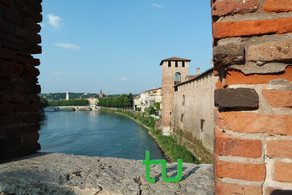
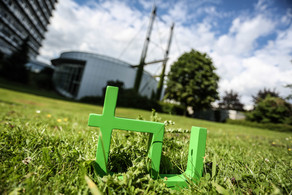
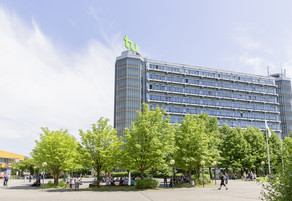
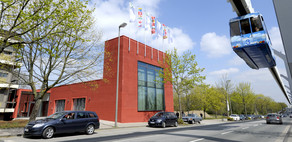


![[Translate to English:] [Translate to English:]](/storages/zentraler_bilderpool/_processed_/c/1/csm_Kopfbild-H-Bahn_2b0e06bf0e.jpg)
